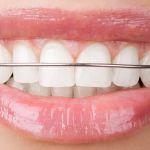What to Do If Your Tooth Hurts When Chewing: Causes and Solutions
- 1. Understanding Tooth Pain When Chewing
- 2. Common Causes of Tooth Pain While Chewing
- 3. How to Get Immediate Relief from Tooth Pain
- 4. Long-Term Solutions to Prevent Tooth Pain
- 5. When Should You See a Dentist?
- 6. Conclusion and Next Steps
Experiencing tooth pain while chewing can be uncomfortable and concerning. This type of pain can happen suddenly, or it may develop over time, gradually becoming more intense. If you've ever wondered "what to do if your tooth hurts when chewing," you're not alone. Tooth pain during eating can result from various underlying issues, and identifying the cause is key to finding relief. In this article, we’ll walk through common causes, immediate remedies, long-term solutions, and when it's time to consult a dentist for help.
Common Causes of Tooth Pain While Chewing
Tooth pain when chewing can happen for a variety of reasons. Understanding the underlying cause can help guide you toward the right treatment. Here are some of the most common causes of tooth pain during chewing:
1. Tooth Decay
Tooth decay, or cavities, is a leading cause of pain while chewing. When a cavity forms, it can create a hole in the tooth, which can become sensitive to pressure, temperature, and even certain foods. If you experience pain in a specific area when chewing, it's likely that tooth decay is the culprit.
2. Gum Disease
Gum disease, or periodontitis, can cause pain in the gums and teeth. This condition occurs when plaque builds up along the gum line, causing irritation and inflammation. As the disease progresses, the teeth may become loose and painful to chew.
3. Cracked or Fractured Teeth
A cracked or fractured tooth can also lead to pain when chewing. This happens when the tooth structure is compromised, and pressure on the damaged area triggers discomfort. If you bite down on something hard or experience sharp pain, this may be the cause of your discomfort.
4. Sensitivity to Hot or Cold
If you’ve recently consumed hot or cold foods and experienced pain, it may be a sign of tooth sensitivity. This can occur if the enamel on your teeth is worn down, exposing the sensitive parts of your teeth to temperature changes.
How to Get Immediate Relief from Tooth Pain
If your tooth hurts when chewing, there are a few steps you can take at home to relieve the discomfort temporarily until you can see a dentist:
1. Use Over-the-Counter Pain Relievers
Non-prescription pain relievers, such as ibuprofen or acetaminophen, can help reduce inflammation and ease tooth pain. Always follow the instructions on the label for proper usage.
2. Apply a Cold Compress
Applying a cold compress to the outside of your cheek near the painful area can help numb the pain and reduce swelling. Be sure to wrap the ice pack in a cloth to avoid direct contact with your skin.
3. Avoid Hard or Sticky Foods
If chewing worsens your pain, try to avoid hard or sticky foods that put extra pressure on the affected tooth. Soft foods can help prevent additional irritation.
Long-Term Solutions to Prevent Tooth Pain
While immediate relief is helpful, it’s important to address the root cause of your tooth pain for long-term relief. Here are some tips for maintaining good oral health:
1. Practice Good Oral Hygiene
Brushing and flossing regularly can help prevent tooth decay and gum disease. Make sure to brush your teeth twice a day with fluoride toothpaste and floss daily to remove plaque from between your teeth.
2. Regular Dental Checkups
Routine visits to the dentist are crucial for catching issues like cavities, gum disease, or cracks early on. Regular cleanings and checkups help keep your mouth in optimal condition and prevent serious problems from developing.
3. Protect Your Teeth with a Mouthguard
If you grind your teeth at night, consider wearing a mouthguard. Teeth grinding can lead to cracked or worn-down teeth, which could result in pain when chewing. A dentist can provide a custom-fit mouthguard to protect your teeth.
When Should You See a Dentist?
While some cases of tooth pain can be managed at home, it’s important to see a dentist if the pain persists or worsens. Here are some signs that indicate you should schedule a visit:
1. Pain Lasts for More Than a Few Days
If your tooth pain continues for several days despite at-home treatment, it may indicate a more serious issue, such as an infection or abscess.
2. Severe Pain or Swelling
Intense pain or swelling in the gums around the affected tooth is a sign that you may have an infection or injury that requires professional attention.
3. Difficulty Eating or Talking
If the pain is severe enough to affect your ability to eat or speak comfortably, don’t hesitate to schedule an appointment with your dentist.
Conclusion and Next Steps
If your tooth hurts when chewing, it’s important to identify the cause and take the right steps to relieve the pain. Whether it’s tooth decay, gum disease, or a cracked tooth, understanding the problem and seeking timely treatment will help prevent further damage. Remember, maintaining good oral hygiene and visiting your dentist regularly are essential for preventing tooth pain in the future. If you're looking for quality dental products to help maintain your oral health, visit Dentistry Toothtruth for top recommendations.







 Ernstberger Orthodontics5.0 (326 review)
Ernstberger Orthodontics5.0 (326 review) Lightfoot Center for Laser Periodontics5.0 (69 review)
Lightfoot Center for Laser Periodontics5.0 (69 review) Kanawha City Pediatric Dentistry4.0 (163 review)
Kanawha City Pediatric Dentistry4.0 (163 review) Dr. Dental: Dentistry & Braces4.0 (711 review)
Dr. Dental: Dentistry & Braces4.0 (711 review) North Atlanta Family Dentistry4.0 (482 review)
North Atlanta Family Dentistry4.0 (482 review) Richmond VA Dental Arts4.0 (181 review)
Richmond VA Dental Arts4.0 (181 review) The Importance of Oral Health Education During Pregnancy for a Healthy Pregnancy
The Importance of Oral Health Education During Pregnancy for a Healthy Pregnancy Best Tips for Brushing Your Teeth Properly for Healthy Gums: Essential Techniques for Oral Health
Best Tips for Brushing Your Teeth Properly for Healthy Gums: Essential Techniques for Oral Health Why Skipping Dental Checkups Can Lead to Bigger Oral Health Problems
Why Skipping Dental Checkups Can Lead to Bigger Oral Health Problems Advantages of Porcelain Dental Restorations
Advantages of Porcelain Dental Restorations How Can Diabetes Cause Tooth and Gum Problems? Preventing and Managing Oral Health Issues
How Can Diabetes Cause Tooth and Gum Problems? Preventing and Managing Oral Health Issues Healthy Habits for Promoting Good Oral Health and Hygiene: Tips for a Healthy Smile
Healthy Habits for Promoting Good Oral Health and Hygiene: Tips for a Healthy Smile